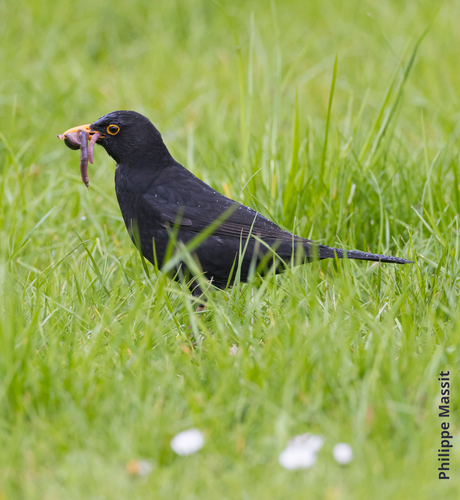
ROIZ David
- MIVEGEC, Institut de Recherche pour le Développement, Montpellier, France
- Disease Ecology/Evolution, Ecohealth, Ecology of hosts, infectious agents, or vectors, Pest management, Taxonomy of hosts, infectious agents, or vectors, Vectors, Zoonoses
Recommendations: 0
Review: 1
Review: 1

Relevance of the synergy of surveillance and populational networks in understanding the Usutu virus outbreak within common blackbirds (Turdus merula) in Metropolitan France, 2018
Usutu virus: Importance of a participatory research network to document the spatio-temporal circulation of USUV virus.
Recommended by Florian Liégeois based on reviews by David Roiz and 1 anonymous reviewerUsutu virus (USUV) is a neurotropic arbovirus of the family Flaviridae, genus Orthoflavivirus (https://ictv.global/report/chapter/flaviviridae/flaviviridae/orthoflavivirus). USUV is a member of the Japanese Encephalitis Virus serocomplex (JEV serocomplex) and frequently cocirculates with West Nile virus, with which it shares a similar natural life cycle involving mosquito species as primary vectors and avian species as amplifying hosts.
USUV was first discovered in 1959 in a Culex neavi mosquito species in South Africa and was subsequently detected in several African countries, including Madagascar. In 1996, USUV was detected in Italy (Weissenböck et al. 2013), and in France in 2015 (Lecollinet et al. 2016). Thus, USUV is currently endemic in Africa and Europe (Amy N. Nelson, Alexander Ploss, 2024).
Although USUV does not appear to be pathogenic in African bird populations, its introduction into Europe via migratory birds from Africa has had a devastating impact on local bird species, particularly in common blackbirds (Yannick Simonin, 2024). Besides, USUV can be transmitted to incidental hosts such as humans and thus represents an emerging threat for public health.
In a context of global change favoring the expansion of the habitats of the vectors involved in the transmission of USUV (and other emerging pathogens), it is essential to study the ecological and environmental factors facilitating its spread.
In this study presented by M. Bouchez-Zacria et al , the authors compiled data collected by various players in animal health (SAGIR and AFVPZ network) and avian wildlife conservation (REZOP network) in order to gain a better understanding of the spatial, temporal and population factors involved in the USUV epidemic event in France in 2018.
Although this study has a number of weaknesses, which are clearly identified by the authors, the originality of the methodological approach, which brings together different stakeholder networks, should be emphasised. It demonstrates the importance of a transdisciplinary approach in providing a better understanding of the factors involved in the spread of an emerging pathogen, and thus of the resources needed to combat this threat effectively.
References
Weissenböck H, Bakonyi T, Rossi G, Mani P, Nowotny N. Usutu virus, Italy, 1996.Emerg Infect Dis. 2013 Feb;19(2):274-7. https://doi.org/10.3201/eid1902.121191.
Lecollinet S, Blanchard Y, Manson C, Lowenski S, Laloy E, Quenault H, Touzain F, Lucas P, Eraud C, Bahuon C, Zientara S, Beck C, Decors A. Dual Emergence of Usutu Virus in Common Blackbirds, Eastern France, 2015. Emerg Infect Dis. 2016 Dec;22(12):2225. https://doi.org/10.3201/eid2212.161272.
Amy N. Nelso, Alexander Ploss. Emerging mosquito-borne flaviviruses MBio December 2024 Volume 15 Issue 12 e02946-24. https://doi.org/10.1128/mbio.02946-24.
Simonin Y. Circulation of West Nile Virus and Usutu Virus in Europe: Overview and Challenges. Viruses. 2024 Apr 12;16(4):599. https://doi.org/10.3390/v16040599.
Bouchez-Zacria M., Calenge C., Villers S., Lecollinet S., Gonzalez G., Quintard B., Leclerc A., Baurier F., Paty MC, Faure E, Eraud C., Decors A. Relevance of the synergy of surveillance and populational networks in understanding the Usutu virus outbreak within common blackbirds (Turdus merula) in Metropolitan France, 2018. bioRxiv ver. 2, peer-reviewed and recommended by PCI Infections. https://doi.org/10.1101/2024.07.22.604715.